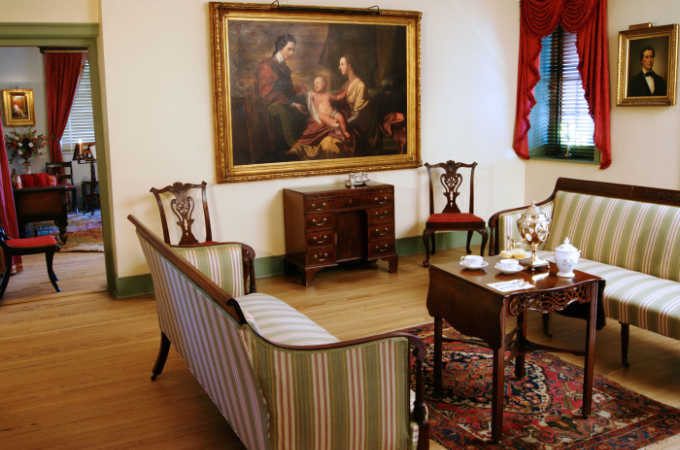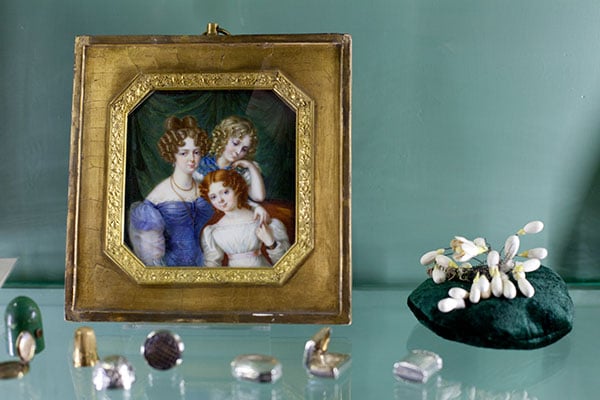


A Family’s Life
Inside The South Flanker
The South Flanker, today's House Museum, was built in 1755 as gentlemen's guest quarters and a business office. Together with the North Flanker – a library, musical conservatory and art gallery – it completed Henry Middleton's overall grand design. The South Flanker is a surviving portion of the three-building residential complex that once stood overlooking the Ashley River.

Step Back In Time
Both flankers, along with the main house, were burned by Union troops in February, 1865, just two months before the end of the Civil War. The South Flanker was the least damaged of the three buildings and repairs to it began in 1869 and included a new roof, Dutch gable ends and an entry hall leading from the Greensward. Thus strengthened, the South Flanker survived Charleston's Great Earthquake in 1886 that brought down the gutted walls of the other residential buildings. By 1870 the Middletons had returned to live again at Middleton Place and the South Flanker continued to serve subsequent generations until becoming a House Museum in 1975.
Self-guided tours of the House Museum introduce visitors to the men, women and children who made Middleton Place their home for over three centuries, including not only the Middleton family, but also the enslaved people and freedmen who served them. The story is interpreted through an extraordinary collection of original portraits, furniture, silver, china, documents and other objects that belonged to and were used by family members. Portraits by Benjamin West and Thomas Sully; fine Charleston and London-made silver; a pre-revolutionary breakfast table made by Thomas Elfe, Charleston's most celebrated cabinetmaker; a rare facsimile copy on silk of the Declaration of Independence, and first edition works by Mark Catesby, John James Audubon and other significant artists and authors reflect the interests, tastes and resources of the Middleton family.


Guided Tours
Explore the generations of Middleton family, learn about the lives of the enslaved and freedmen, meet working heritage breeds and more.
learn more

